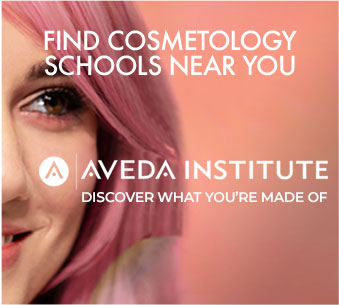Permanent Makeup Artist Careers: What Cosmetic Tattoo Artists Do
Permanent makeup artists, also called cosmetic tattoo artists, help clients look and feel their best by providing permanent makeup services. People you work with could want permanent makeup to make their daily routines easier, enhance their appearances, or even increase confidence after an injury or illness has affected their skin.
On this page, we explain what permanent makeup artists do, how much they earn, and whether a career in this field is right for you. We'll also briefly cover how to become a cosmetic tattoo artist.
Learn More About Permanent Makeup
What Jobs Do Permanent Makeup Artists Do?
As a permanent makeup artist, you'll use devices or methods like traditional coil tattoo machines, rotary pen machines, and the non-machine hand method to apply "cosmetic tattoos." Your work will sometimes mimic the appearance of standard makeup, like lip color and eyeliner. In other cases, you'll create the illusion of fuller hair, hide scars, blend uneven skin pigments, or put the finishing touches on surgical reconstructions.
Below are many of the services a permanent makeup artist may perform:
Eyeliner and Lash Enhancement
These common treatments are performed on the upper and lower eyelids to create the look of lined eyes and full lashes without the smudging or need for reapplication that come with traditional makeup. Your techniques and tools vary depending on the client and desired outcome—some clients might want soft, subtle enhancements, while others might ask you for sharp, defined lines.
Eyebrow Hair Simulation
Some clients want to enhance or recreate the look of their eyebrows because they have little or no hair there. Others will seek your services to address hair loss from medical conditions or injuries. Here, too, you'll use different techniques and equipment depending on the client's vision and your judgment and training. As with eyeliner, eyebrow tattoos can range from thin, sharp lines to fluffy strokes that mimic natural hair.
Microblading
Microblading is one of the most popular treatments in the entire spectrum of cosmetic makeup. This semi-permanent technique is most often applied to the eyebrows. It involves using a handheld microblading pen to dispense special ink that's far less concentrated than standard tattoo ink, resulting in much more subtle, natural-looking strokes of pigment.
Scalp Hair Simulation
You'll mostly transform faces as a permanent makeup artist, but some of the techniques can be applied to the scalp as well. The popular art of microblading, for example, originally became an in-demand technique for simulating fuller eyebrows, but many people request it to fill out thin or missing head hair. Microblading and other cosmetic tattoo techniques can create the illusion of thicker natural hair on the hairline and the scalp itself.
Areola Repigmentation
This is a specialty technique, and if you plan to offer it among your services, be prepared to dedicate extra time and effort to perfecting this advanced method of cosmetic tattooing. In many cases, clients—often women, but sometimes men as well—seek this service after breast surgery or reconstruction. Re-pigmentation is among the most common requests, but if you learn this specialty, you'll also be qualified to offer areola scar camouflage, size or color adjustment, and complex simulation.
Skin Needling
Sometimes called "derma rolling," skin needling combines ancient acupuncture techniques with modern mesotherapy. The process uses a series of tiny punctures to stimulate natural collagen production in the skin.
Corrective Pigment Camouflage
Also known as CPC, corrective pigment camouflage is an umbrella term that can include several methods for mitigating tissue color defects. In fact, skin needling, scar relaxation, and melanocyte restoration are all forms of CPC. If you take up this specialty, you'll be heavily focused on post-treatment care, as bleeding, swelling, pain, and discoloration can occur in the hours and days immediately following a CPC procedure.
Burn Scar Camouflage
Burn scar camouflage is a subfield of micropigmentation. Considering that scar tissue doesn't retain pigment well—not to mention the nature and gravity of the work—it's one of the most difficult, precise, and consequential specialties in cosmetic tattooing. This challenging technique usually involves working on large segments of skin, often on the face. Since burn victims have usually undergone multiple surgeries before they see a permanent makeup artist, their skin is often hypersensitive and in the process of recovering from secondary surgical scarring.

sponsored content, school availability varies by location

sponsored content, school availability varies by location

sponsored content, school availability varies by location

sponsored content, school availability varies by location

sponsored content, school availability varies by location

sponsored content, school availability varies by location
Permanent Makeup Artist Salary and Job Outlook
The Bureau of Labor Statistics (BLS) doesn't track data specifically for permanent makeup artists. In fact, salary data, in general, is scarce! With standard procedures averaging between $130–$800 each, independent permanent makeup artists can stand to earn a nice salary. If you're employed in a salon, clinic, or doctor's office, however, you might receive only a portion of that income or an hourly wage. Also, advanced specialties like burn scar camouflage command higher pay than standard treatments.
How to Become a Permanent Makeup Artist
The path to becoming a permanent makeup artist varies depending on your career goals, areas of interest, and, most importantly, where you live because licensing requirements can change considerably from one state to the next.
In all states, however, you’ll be able to perform more procedures with each new level of training you complete.>
Is Becoming a Permanent Makeup Artist Right for Me?
Permanent makeup artistry is an exciting, far-reaching, and potentially lucrative career; only you can decide if it's the right path for you. The first consideration is the upfront investment—you'll have to decide if you can part with the time and money needed to complete a training program. There are, however, other considerations to think about.
The work itself deals with the nitty-gritty of the human body. Your daily life will involve intimate contact with people—their skin, hair, and blood. If you're squeamish about that type of work, this likely isn't the right career for you.
Also, consider that you'll be under intense pressure to perform perfect work 100% of the time. When cosmetologists give a bad haircut or mess up a nail job, they can work to fix the problem and, if all else fails, wait for the hair or nails to grow out. Permanent makeup, on the other hand, is much more, well, permanent, and it's harder to fix mistakes.
Program: Cosmetology
Program: Cosmetology
Program: Cosmetology
sponsored content
Professional Organizations for Skin Care Professionals
Whether you're just starting your journey, nearing the end of your training, or already working as a career professional, these resources can offer you support, information, and networking opportunities.
Society of Permanent Cosmetic Professionals: The SPCP is a membership organization that represents permanent makeup artists and promotes education, safety, and best practices in the industry.
American Academy of Micropigmentation: Founded in 1992, AAM is a nonprofit dedicated to educating and certifying micropigmentation professionals while promoting legislation on their behalf.
Permanent Makeup Society International: Established in 1995, PMSI offers continuing education and resources to help permanent makeup professionals promote themselves and their businesses.
League of Permanent Cosmetic Providers: The LPCP exists to elevate industry professionals by promoting higher standards of education, performance, ethics, and training.
Permanent Makeup Schools in Your State
- Alabama
- Alaska
- Arizona
- Arkansas
- California
- Colorado
- Connecticut
- Delaware
- D.C.
- Florida
- Georgia
- Hawaii
- Idaho
- Illinois
- Indiana
- Iowa
- Kansas
- Kentucky
- Louisiana
- Maine
- Maryland
- Massachusetts
- Michigan
- Minnesota
- Mississippi
- Missouri
- Montana
- Nebraska
- Nevada
- New Hampshire
- New Jersey
- New Mexico
- New York
- North Carolina
- North Dakota
- Ohio
- Oklahoma
- Oregon
- Pennsylvania
- Rhode Island
- South Carolina
- South Dakota
- Tennessee
- Texas
- Utah
- Vermont
- Virginia
- Washington
- West Virginia
- Wisconsin
- Wyoming
